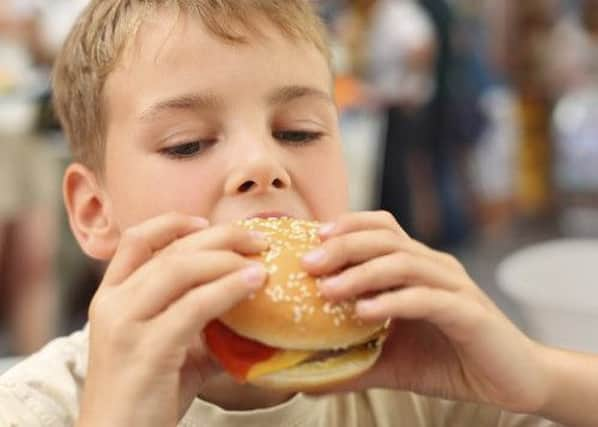Campaign to cut junk food from kids’ diet


The research found that these foods, which are high in fat, salt and sugar, are the second most consumed food group by children in Northern Ireland, ahead of fruit, vegetables and starchy carbohydrates that are recommended as part of a healthy diet.
In addition, the study showed that children consumed the highest amounts of junk food in the afternoon and evening with almost 40 per cent of afternoon snacks and 25 per cent of evening snacks consisting of foods high in fat, sugar and salt.
Advertisement
Hide AdAdvertisement
Hide AdThe research coincides with the latest phase of the START campaign, a five-year public health awareness campaign from safefood, the Department of Health and the Public Health Agency.
The START campaign is encouraging parents to give healthier snacks to children and to only have treats in small amounts, and not every day. Agreeing to changes together as a family and having a ‘no-junk-during-weekdays’ plan are also ideas for families to cut down on treat foods.
Dr Cliodhna Foley-Nolan, director, human health and nutrition at safefood, said: “The stand-out result in this research is how so-called junk food is now a filler between and after meals in families’ daily diets.
“Parents involved in the research told us that afternoons and evenings are the danger times when it comes to giving these foods to their children and to themselves.
Advertisement
Hide AdAdvertisement
Hide Ad“Parents want their children to feel cared for and not to be hungry when they get in from school or before dinner is ready. These junk foods, which are full of empty calories, fill that gap and are now a staple in our weekly shop and our children’s daily diets.
“We struggle to avoid these treat foods every day because they’re available everywhere, highly palatable, cheap and frequently on special offer.”
Recent research for the START campaign highlighted that one in three parents (33 per cent) found it difficult to cut back on treat foods or keep them to a minimum. More than one in three parents (36 per cent) also reported they were not confident about changing their child’s behaviour when it came to eating more healthily.
The START campaign is encouraging families to take the first step towards a healthier lifestyle for their children by supporting them to achieve one daily win, and to persist with the changes, no matter how difficult they become.
To find out more about the START campaign and ways to make a healthy, positive start visit www.makeastart.org.